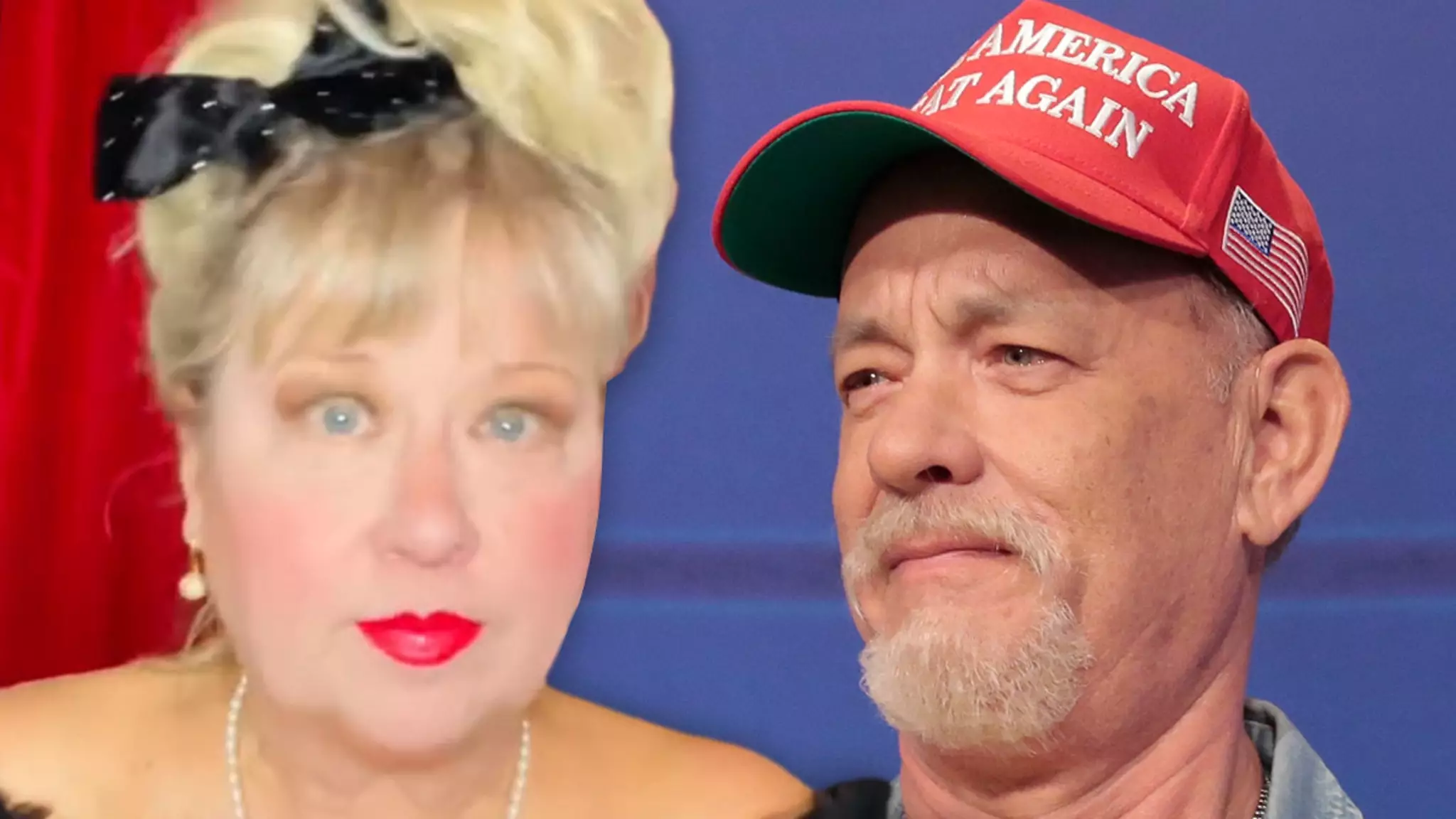In the ever-evolving landscape of political humor, few instances stir as much controversy as a joke that touches a nerve within the deeply polarized American electorate. Recently, Tom Hanks found himself at the epicenter of this phenomenon following a skit on “Saturday Night Live” (SNL) where he took jabs at Trump supporters. While many may argue that comedy often serves as a mirror to society, the reaction to Hanks’ performance exhibits the precarious line that comedians walk when dealing with sensitive political issues.
In this particular skit, Hanks portrayed a caricature of a Trump supporter who was humorously depicted as fearful of interacting with a Black man. The portrayal, intended as satire, sparked a wave of backlash that highlights the deep divides within political affiliations. This incident underscores how humor, particularly in the realm of politics, can ignite outrage among those who feel targeted or misrepresented.
Victoria Jackson, an ex-SNL cast member known for her unabashed support for former President Trump, quickly voiced her discontent with Hanks’ routine. Addressing her concerns through TMZ, she referenced political commentator Link Lauren, who criticized the notion that “MAGA = racist” as not only misguided but “downright disgusting.” This viewpoint echoed Jackson’s sentiments, emphasizing the struggle many face in reconciling their political beliefs with the popular narratives presented in mainstream media.
Jackson’s frustration extended beyond the political commentary. She expressed offense towards the sexual vulgarity permeating the show, indicating that her concerns were not solely rooted in political ideology but also in the show’s overall content. Her remarks reflect a growing critique of how some comedic platforms seem to prioritize shock value over substance and decorum.
One of Jackson’s more pointed observations questioned the absence of comedic critique aimed at supporters of Vice President Kamala Harris, suggesting that the humor on SNL is selective and biased. This raises a critical point about the responsibility of comedians and writers in acknowledging the diversity of political perspectives. Should humor aim to provide an equal opportunity for ridicule across the political spectrum?
This selective humor also feeds into the broader debate concerning political correctness and cancel culture. The backlash that Hanks faces could reflect a growing intolerance for what some perceive as elitist comedy that dismisses the values and beliefs of millions. As individuals increasingly seek representation and fairness in all forms of media, the realm of comedy may need to reassess its role and responsibility in a rapidly changing sociopolitical environment.
Moving Forward: A Changing Landscape
As the fallout continues, it is evident that the landscape of political humor is more complex than ever. The reception of comedy that touches on sensitive political issues demonstrates how deeply intertwined entertainment and politics have become. Tom Hanks’ experience serves as a case study on the challenges faced by comedians who navigate an audience that is increasingly divided and vocal.
Ultimately, the bridge between humor and political commentary must be approached with caution. The implications of Hanks’ skit extend beyond mere laughter; they challenge the very essence of comedy as a unifying force in society. In this divided climate, the future of political humor may well depend on its ability to engage across lines without alienating segments of the audience. The road ahead looks bumpy; Hanks and his contemporaries may need to brace themselves for more scrutiny as they tread the treacherous waters of modern comedy.

